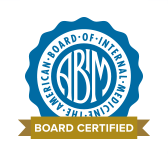Measles
Why is Measles Important?
Measles virus is a highly contagious airborne virus that spreads through the air even after the patient has departed and/or is not even symptomatic with a rash yet.
This virus lives in the nose and throat.
The virus spreads easily through the air when a sick person coughs or sneezes.
Approximately 9 out of 10 non-immune persons will develop measles upon exposure.
Communicability
- Infectious 4 days before to 4 days after rash onset.
Symptoms :
- High Fever (over 101°F)
- Red watery eyes
- Cough
- A rash that starts on the face and spreads to the rest of the body
Complications
- Otitis media, bronchopneumonia, dehydration, convulsions, laryngotracheobronchitis and diarrhea.
- Subacute sclerosing panencephalitis (SSPE) is a rare but fatal degenerative disease develops 7-10 years after measles infection.
Treatment
There’s no specific antiviral agent available
Prevention
- Best prevention is timely vaccinations. See vaccine schedule.
- Persons with measles must remain isolated for 4 days after rash onset.
Diarrhea
Diarrhea commonly results from gastroenteritis caused by viral infections,parasites or bacterial toxins. In sanitary living conditions where there is ample food and a supply of clean water, an otherwise healthy patient usually recovers from viral infections in a few days. Symptomatic treatment for diarrhea involves the patient consuming adequate amounts of water to replace that loss, preferably mixed with electrolytes to provide essential salts and some amount of nutrients. For many people, further treatment is unnecessary.

